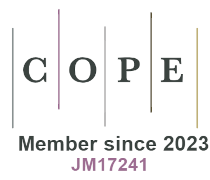Does globalization support corruption?
DOI:
https://doi.org/10.18778/2082-4440.17.03Keywords:
corruption, globalization, economic development, investmentAbstract
Corruption has been present in societies since ancient times. Economic development and the evolution of culture did not result in elimination of corruption. Therefore, you should ask the question: does globalization promote corruption? The article presents a literature review that points to an ambiguous answer to this question. Statistical analysis of selected macroeconomic values are compared to the Corruption Perceptions Index. The results indicated that, for developing countries, increasing economic growth was associated with a decrease in corruption, but it is not eliminated. It must be concluded that there is a level of corruption that is accepted by governments and society.
References
Badinger H., Nindl E. (2014), Globalisation and corruption, revisited, „The World Economy”, Vol. 37, nr 10, ss. 1424–1440.
Google Scholar
Bodislav D., Rotaru C., Georgescu R. (2016), Globalization of the corruption phenomenon – human capital gone wild, „Theoretical and applied economics”, Vol. 23, nr 3, ss. 163–176.
Google Scholar
Cywilnoprawna konwencja o korupcji sporządzona w Strasburgu dnia 4 listopada 1999 r. (Dz.U. nr 244 poz. 2443).
Google Scholar
Dzhumashev R. (2014), Corruption and growth: The role of governance, public spending and economic development, „Economic Modelling”, nr 37, ss. 202–215.
Google Scholar
Elliott A. (1997), Corruption and the Global Economy, Institute for International Economics, Waszyngton.
Google Scholar
Ewoh A., Matei A., Matei L. (2013), Corruption, public integrity, and globalization in South-Eastern European states. A Comparative analysis, „Theoretical and Applied Economics”, Vol. 20, nr 1, ss. 7–34.
Google Scholar
Heckelman J., Powell B. (2010), Corruption and the Institutional Environment for Growth Comparative Economic Studies, Palgrave Macmillan, nr 52(3), ss. 351–378.
Google Scholar
Herodot (2008), Dzieje, Czytelnik, Warszawa.
Google Scholar
Klitgaard R. (1988), Controlling Corruption, University of California Press, Berkeley.
Google Scholar
DOI: https://doi.org/10.1525/9780520911185
Lewicka-Strzałecka A. (2007), Korupcja i zaufanie, „Annales. Etyka w życiu gospodarczym”, Vol. 10, nr 1, ss. 211–219.
Google Scholar
Mindur M. (2006), Korupcja a rola państwa w rozwoju gospodarczym, „Studia i prace kolegium zarządzania i finansów”, nr 74, ss. 75–84.
Google Scholar
Stachowicz-Stanusch A., Sworowska A. (2012), Definiowanie korupcji w kontekście różnic kulturowych, „Organizacja i zarządzanie”, nr 1, ss. 97–115.
Google Scholar
Torgler B., Piatti M. (2013), Extraordinary wealth, globalization and corruption, „Review of income and Wealth”, Vol. 59, nr 2, ss. 341–359.
Google Scholar
Walczak-Duraj D. (2010), Socjologia dla ekonomistów, Polskie Wydawnictwo Ekonomiczne, Warszawa.
Google Scholar
www.databank.worldbank.org.
Google Scholar
www.transparency.org.
Google Scholar
www.worldbank.org.
Google Scholar
Downloads
Published
How to Cite
Issue
Section
License

This work is licensed under a Creative Commons Attribution-NonCommercial-NoDerivatives 4.0 International License.









